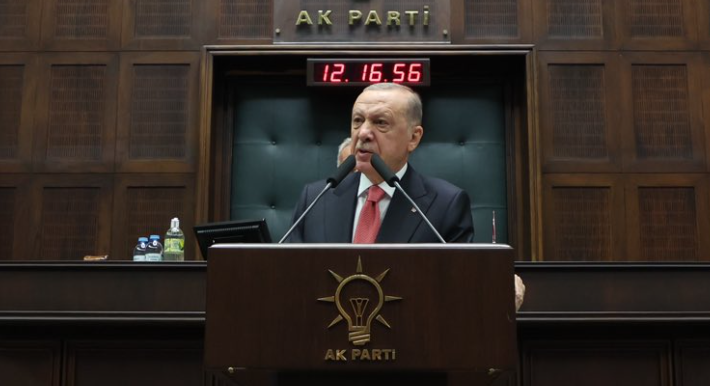President Recep Tayyip Erdoğan pledged on Wednesday to reform Turkey’s justice system to tackle rising crime following a series of high-profile murders that have sparked public outrage.
Speaking to members of his ruling Justice and Development Party (AKP) in Ankara, Erdogan called for changes to the criminal code to ensure harsher penalties for offenders and reduce the release of convicts.
Turkey has faced a surge in violent crime, particularly femicides, with the recent killing of two 19-year-old women in İstanbul, one of whom was beheaded, causing public outrage. The suspect later died by suicide. Another incident in late September involved the murder of a 26-year-old policewoman by a man with a long criminal record, raising concerns about repeat offenders.
Erdoğan announced plans to make it easier to detain individuals suspected of committing multiple crimes and tighten rules for early release.
“A series of recent events, from the martyrdom of a policewoman to the brutal murder of two young women, have provoked a justified reaction within our nation,” he said. “It bothers us, as it does everyone else, to see criminals with dozens of cases on their criminal records free to walk the streets as they choose.”
Erdoğan’s proposals include measures to detain suspects while their trials are ongoing. He suggested expanding the scope of pretrial detention for repeat offenders, allowing authorities to take into account pending cases when assessing whether someone should be held in custody. Currently, lengthy court procedures mean that some cases take up to seven years to reach a final verdict, often allowing suspects to remain free while awaiting judgment.
Additionally, Erdoğan said the government aims to reform sentence enforcement laws to ensure convicts serve at least 10 percent of their sentences before being eligible for release.
The president’s remarks come amid increasing public anxiety over violent crime. One watchdog group reports that 290 women have been murdered in Turkey this year and more than 160 deaths of females were categorized as “suspicious” by authorities, often labeled as suicides or accidents.
Erdoğan stressed the need to restore public trust in the legal system, promising that reforms would target specific crimes that harm peace in society. He also vowed to address any deficiencies in the police force and judiciary to prevent similar incidents.
The proposed changes have sparked a broader debate about the government’s handling of crime, with critics accusing the AKP of failing to address systemic issues in the justice system. In particular, there is frustration over the release of suspects with extensive criminal records, a policy that has been linked to past amnesty laws. Many have accused the government of filling the streets with criminals while using the justice system to target political opponents, including journalists and activists, with harsh penalties.
In April 2020 a controversial law enabled the release of more than 100,000 inmates during the COVID-19 pandemic, excluding those jailed on politically motivated charges. Critics argue that the move set a precedent for leniency towards individuals with serious criminal backgrounds, contributing to a perception of impunity. The backlash against recent incidents, including the killing of policewoman Şeyda Yılmaz by a suspect with a history of criminal offenses, has fueled demands for more stringent measures.

